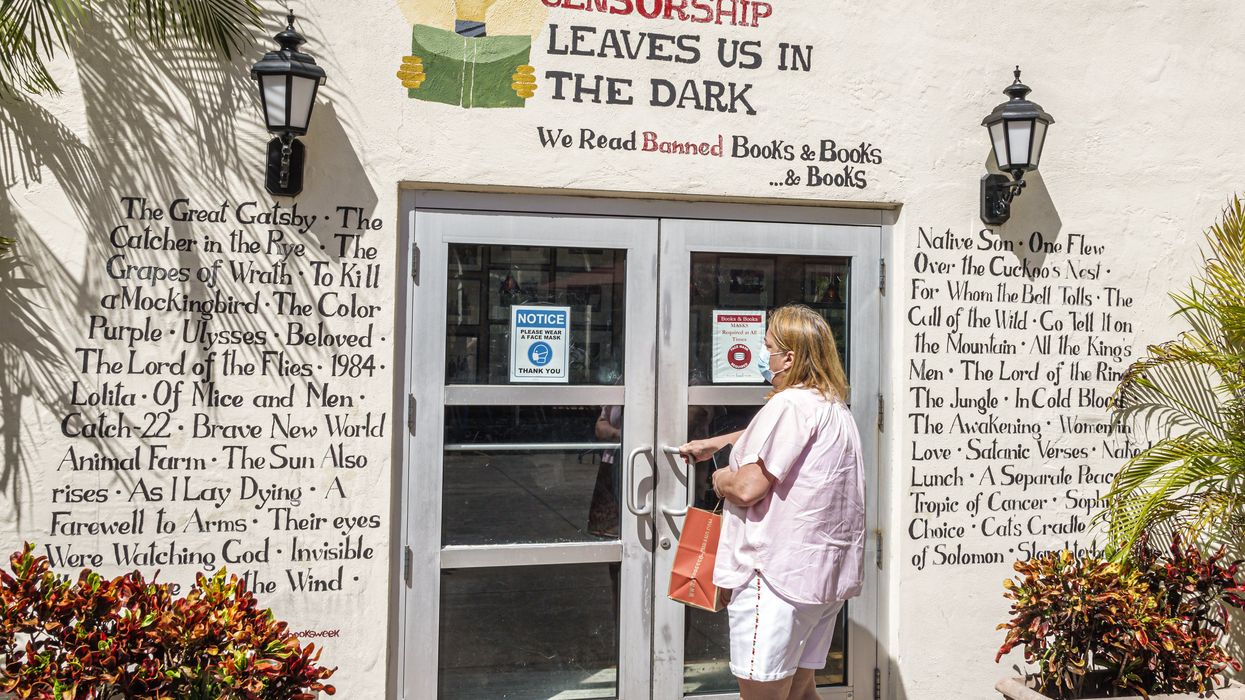Irby is founder and executive director at Barbershop Books and a public voices fellow on racial justice in early childhood of The OpEd Project in partnership with the National Black Child Development Institute.
Toby Price, an assistant principal in Mississippi, was fired from his elementary school last year for reading the children’s book “I Need a New Butt.” In this silly story, a boy discovers “a crack” in his butt and sets off on an imaginative journey to find a new butt because he’s convinced that his butt is “broken.”
As the publisher of a children’s book about a little boy who loves to eat his boogers, I have grown accustomed to receiving occasional feedback from husbands who took my booger book, “ Gross Greg,” home to elated children and the chagrin of their unsuspecting wives. You don't need to be married to understand that there are certain things that a person never wants to hear from a spouse, like “Did you read this book before giving it to our child?”
Regardless of how you feel about butts or boogers, anyone who has spent a significant amount of time teaching or raising young kids understands how powerful potty humor can be. The more a topic, story or situation grosses out adults, the more it excites and intrigues children, especially boys. Throughout human history, humor and stories have made awkward, uncomfortable, and important conversations possible and accessible. Unfortunately, the rise in book bans is making these conversations more difficult. In just half of the 2022-23 academic year, 874 unique titles were banned in schools. Kids’ enjoyment and intrinsic motivation to read are often ignored once a title or topic has been deemed inappropriate by adults.
The mass protests once required to remove a single children’s book from a school or library have been replaced with outspoken individuals and new policies yielding lists of “undesirable” titles generated by artificial intelligence tools like ChatGTP, Google searches, and religious or political groups. Some parents and activists ironically champion free speech while simultaneously embracing the undemocratic removal of titles from public schools and libraries – sometimes without advanced notice or under the cover of night as well as through more public means. Under the guise of “protecting children,” adults increasingly interject their culture wars and personal preferences into education policy and book curation while the documented negative impacts of social media content goes unchecked.
In our brave new world of Instagram models and influencers, research has linked social media use to harmful effects on the self-worth and body image of adolescents and young adults. Cultural trends popularized on social media have contributed to an increase in cosmetic surgeries such as brazilian butt lifts, which have an estimated global mortality rate of one in 20,000 annually with south Florida standing out as America’s hotbed. (Eight women died there in 2021 alone from a fat embolism after a BBL.)
Despite these alarming statistics, some people think educators should be fired for reading a story that uses humor to teach children that the butt they have is okay. Much like the students I taught as a New York City kindergarten and first grade teacher, the comedian in me (I have performed stand-up comedy for the past 14 years) finds humor in adults’ uneasiness with the universally gross, but also in normal [child] behavior of playing with boogers and laughing at potty humor. Something being normal doesn’t make it good, but something not being good doesn’t mean it shouldn’t be discussed. We all knew a gross kid in school or you may have been that kid. How did you interact with the gross kid, if at all, or how did other students interact with you? Helping children overcome their fears, biases and insecurities cultivates the empathy needed for them to appreciate the differences of others in school and later in life.
Banning books deemed too silly, too gross, too this or too that, robs children of an opportunity to understand themselves and each other in holistic ways that recognize their full humanity, diverse lived experiences and individuality. Ignoring students’ interests and reading preferences creates small, warped windows that limit who and what they see and presents children with distorted circus mirrors that only allow them to see the parts of themselves or the world that adults prefer. We don’t give kids enough credit for the herculean effort required to be motivated to read content that isn't personally meaningful, relevant or engaging – and many aren’t as evidenced by the increasing number of American children who do not read for fun.
When speaking to teachers, librarians and parents about my booger book, I start the conversation with a funny quote from the book: “You call them boogers, but Greg calls them delicious little sugars.” After the initial chuckle that usually ensues, I share that if the only thing children learn from Gross Greg is that reading is fun, that's okay with me because it is arguably one of the most important lessons any child can learn.
You can read another article, put down your phone or turn off your monitor, but the youngest and most vulnerable children have no money to buy books, can’t travel to a library alone and have little to no access to books outside of school. Book bans, whether they be institutional policies or the everyday minimizing of children’s reading choices, remind us that the stories, voices and ideas that inspire young kids to read are not guaranteed and must be protected – even the booger and the butt books.




















